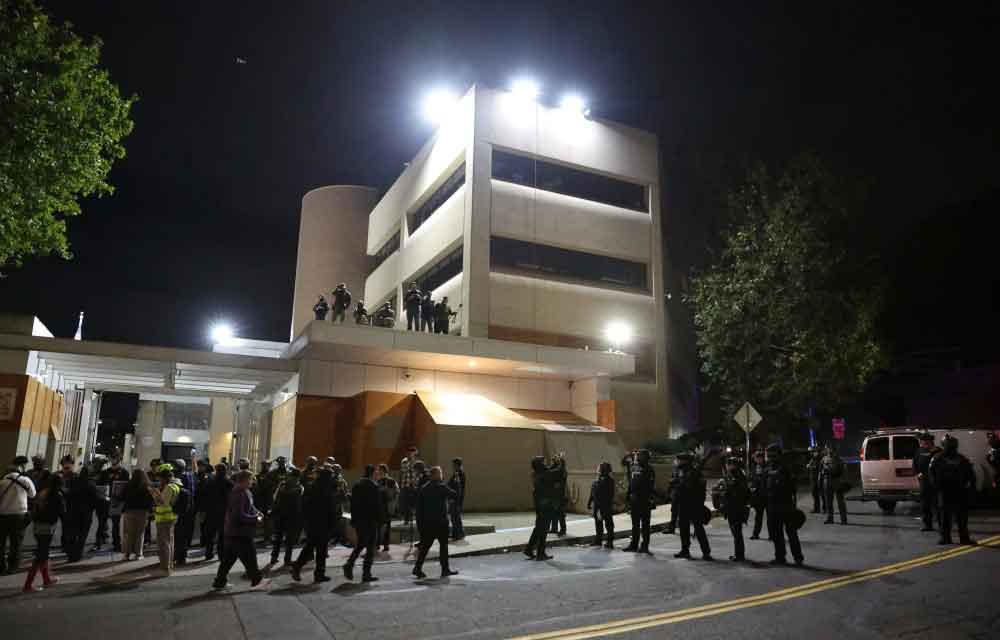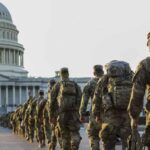Federal Judge Temporarily BLOCKS Trump’s Deployment of Oregon National Guard to Portland

PORTLAND, OR – A federal judge in Oregon, U.S. District Judge Karin J. Immergut, issued a temporary restraining order on Saturday, October 4, 2025, halting the Trump administration’s plan to deploy 200 members of the Oregon National Guard to Portland.
Background of the Controversy
Portland has been a focal point for protests in recent years, often centered around issues of social justice, racial equity, and political polarization. The protests, which have occasionally turned violent, prompted Trump to call for the deployment of the Oregon National Guard to restore order. The move was met with swift opposition from Oregon state officials, including Governor [insert name], who argued that the deployment infringed on state rights and risked escalating tensions in the city.
The federal government’s attempt to intervene in local law enforcement has been a recurring point of contention. Critics argue that deploying the National Guard could lead to further unrest, citing past incidents where federal forces clashed with protesters. Supporters of the deployment, however, claim that local authorities have failed to manage the situation effectively, necessitating federal action.
The Court’s Ruling
The injunction, issued by U.S. District Judge [insert name], temporarily halts the deployment pending further legal review. The judge’s ruling emphasized concerns about the legality of federal overreach into state matters and the potential for civil rights violations. The decision also pointed to the need for clearer justification for deploying military forces in a domestic setting, particularly in the absence of a declared state of emergency.
Legal experts suggest that the case could set a significant precedent for the balance of power between federal and state governments. The judge has scheduled a follow-up hearing to determine whether the injunction will be made permanent or lifted, allowing both sides to present additional arguments.
Reactions and Implications
The ruling has drawn varied responses. Oregon officials and protest organizers have largely welcomed the decision, viewing it as a defense of local control and a check on federal authority. “This is a victory for the people of Portland and for the principle that states have the right to manage their own affairs,” said [insert state official or activist quote, if available].
On the other hand, Trump and his supporters have criticized the ruling, arguing that it undermines efforts to maintain law and order. In a statement, Trump called the decision “a dangerous precedent that emboldens chaos and lawlessness.” His administration is expected to appeal the ruling, potentially escalating the matter to higher courts.
The case also raises broader questions about the role of the National Guard in domestic conflicts and the potential politicization of military deployments. As protests continue in Portland and other cities, the outcome of this legal battle could shape how future administrations address civil unrest.
What’s Next?
The upcoming hearing will be a critical moment in determining whether the Oregon National Guard can be deployed to Portland. Legal analysts anticipate that the case could reach the U.S. Supreme Court if the dispute remains unresolved. In the meantime, Portland remains a flashpoint for debates over free speech, public safety, and the limits of federal power.
For now, the judge’s ruling has paused Trump’s plans, giving state officials and local communities a reprieve. However, the underlying issues driving the protests—and the political divisions surrounding them—are far from resolved.
Stay tuned for updates as this story develops.

 English
English 



































































































































































































































































































































































































































































































































































































































































































































































































































































































































































































































































































































































































































































































































































































































































































































































































































































































































































































































